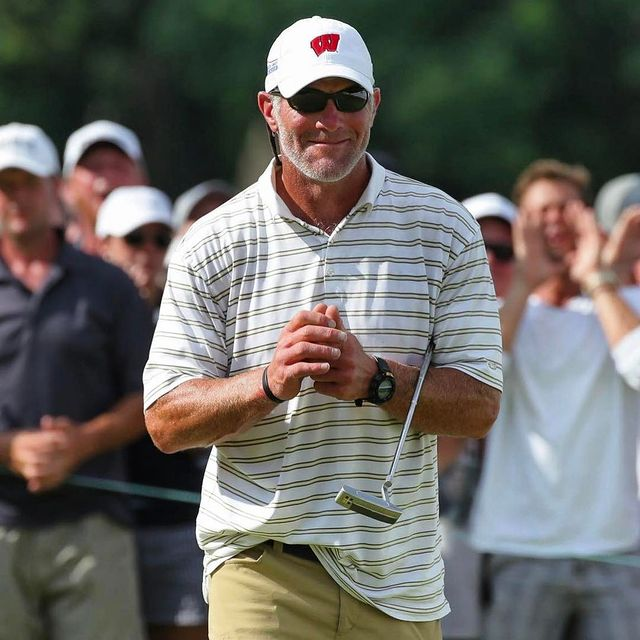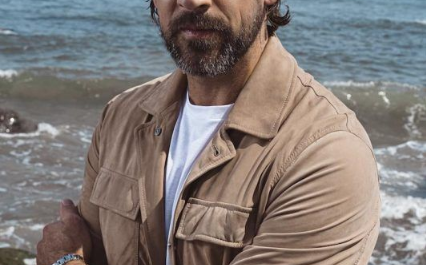Brett Favre’s Story: A Tale of Perseverance and Seeking Help for Men
Brett Favre is arguably one of the greatest and most beloved quarterbacks to ever play in the NFL. Over his 20-year career, which spanned from 1991 to 2010, Favre rewrote the record books and cemented his legacy as a gunslinging iron man. However, behind the highlight reel plays and tough guy image, Favre has also endured personal struggles that few knew about during his playing days. In retirement, Favre has opened up about battling addiction and depression – issues that many men face but don’t discuss. His willingness to share his story and seek help could encourage more men to prioritize their mental well-being.
Tough Guy Image and Overcoming the Stigma
As a quarterback in the NFL, Favre embodied the classic “gunslinger” persona. He was fearless, took risks, and played through pain. This reputation reinforced the stereotype that men, especially athletes, need to be stoic and hide any perceived weaknesses. Like many men of his generation, Favre was raised to believe that admitting vulnerability or mental health issues was a sign of frailty. However, his struggles and decision to seek help challenged this stigma.
Favre’s Struggles Come to Light
In recent years, Favre has candidly discussed his private battles with depression and addiction to painkillers that developed later in his career. The depression stemmed from the physical toll of the game catching up to him as well as personal issues away from football. Meanwhile, his addiction was a result of relying on painkillers to continue playing through numerous injuries, many of which were never disclosed. These revelations shed light on the human side of one of the NFL’s toughest and most durable players of all time.
Seeking Help is a Sign of Strength
For many men struggling in silence, Favre’s willingness to open up can give them permission to do the same. His story shows that even icons are not immune to mental health issues. By seeking counseling and treatment, Favre also demonstrated that getting help is a sign of inner strength, not weakness. He recognized when things had spiraled out of his control and took action to get his life and career back on track. This flies in the face of the notion that admitting difficulties means you’ve failed as a man. Favre’s example emphasizes that true strength lies in acknowledging weaknesses and actively working to overcome them.
Hitting Rock Bottom and the Power of a Comeback
Favre’s struggles came to a head in 2010, when explicit photos he sent to a Jets employee surfaced amid allegations of sexual harassment. This very public fall from grace seemed to be the wake up call he needed. In the aftermath, Favre committed to confronting his issues head-on. He entered an outpatient treatment program for his addiction and received counseling. The results were remarkable – after getting help, Favre enjoyed one of his best and most productive seasons ever as a Viking in 2009, leading the team to the NFC Championship game. His story proves that hitting rock bottom can be the catalyst for change and recovery, not the end. It also demonstrates that seeking help doesn’t diminish your abilities – it can actually unleash your full potential.
Lessons about Strength, Vulnerability, and Well-Being
Favre’s willingness to share his story sends several important messages. First, it emphasizes that mental health issues are real and common among men. His struggles show that even the toughest among us can struggle quietly with depression, addiction, and other illnesses. This helps reduce stigma by showing men that they are not alone in their difficulties or for seeking help.
Second, Favre proves that true strength comes from acknowledging weaknesses, not pretending they don’t exist. His vulnerability in opening up encourages other men to do the same by showing them it takes guts to get help, not hide problems until they spiral out of control.
Finally, his comeback journey after treatment demonstrates that men’s health encompasses both physical and mental well-being. Prioritizing emotional health is just as important as taking care of the body and shouldn’t be seen as a shortcoming. Favre’s story ultimately conveys the life-changing impact that confronting issues and seeking help can have.
Beyond Football
While Favre will always be remembered foremost for his Hall of Fame career on the gridiron, his story and willingness to share it resonates far beyond the football field. At their core, Favre’s struggles and the lessons of his experience tap into universal human truths that men in all walks of life can relate to. We all harbor fears of vulnerability and weakness at times. Favre proves these perceived flaws are actually our greatest strengths when we find the courage to face them. His tale is about overcoming the stigma, understanding that health involves more than just physical fitness, and taking charge of our overall well-being – lessons that can empower men in every profession and stage of life. By opening up about his private battles, Brett Favre has cemented his legacy off the field as an inspiration for any man seeking the strength to get help. His example of perseverance through adversity will continue encouraging others for generations.



